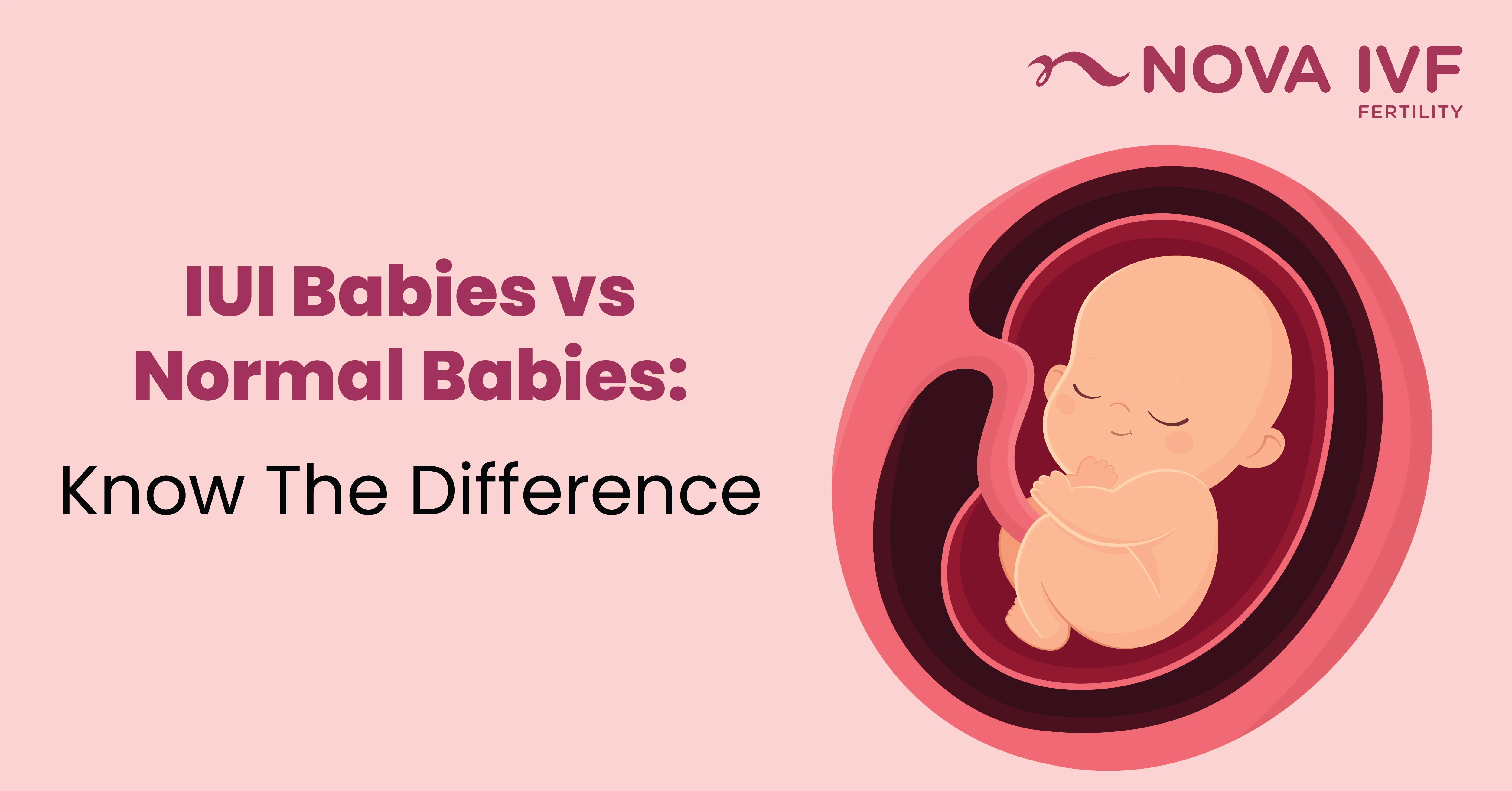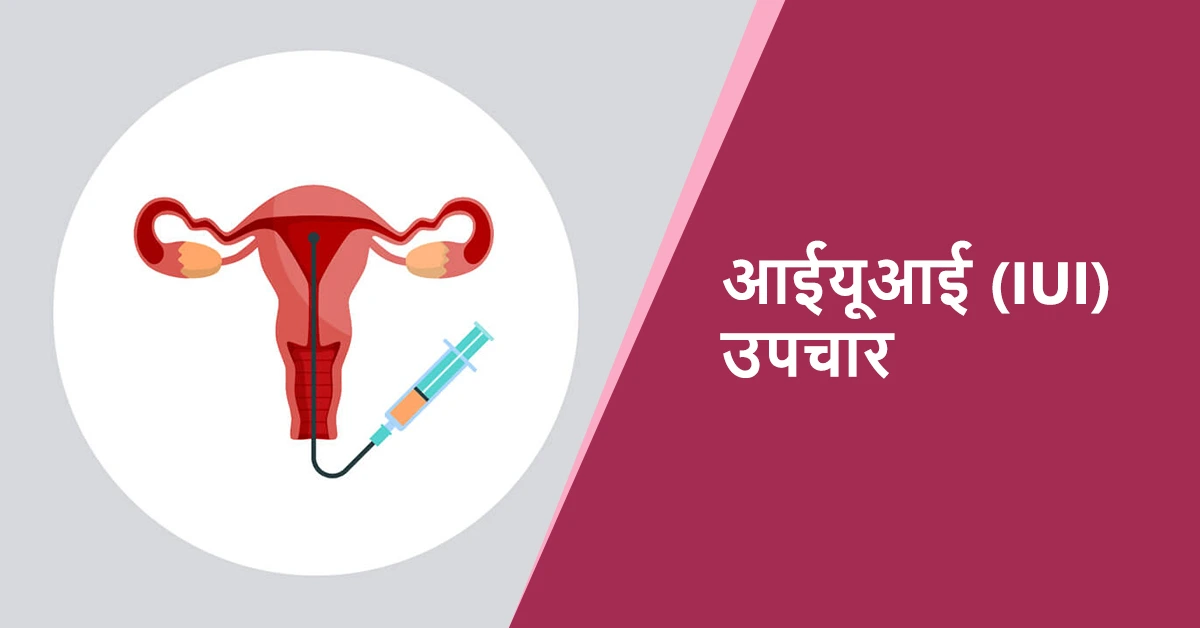IUI Babies Versus Normal Babies: What is the Difference?

Infertility is a common issue that troubles many couples during their reproductive age. However, the advancement in science allows couples who are experiencing infertility to conceive and start a family. IUI is a fertility treatment that is generally chosen by couples who are experiencing problems in conceiving naturally. However, when looking into the treatment plan, couples find themselves comparing IUI babies vs. normal babies.
In simple terms, there is no difference between IUI babies and normal babies. This article sheds light on what is IUI, its risk factors, and other crucial information to help you understand the process.
IUI: An Overview
Intrauterine insemination or IUI is a type of minimally invasive fertility treatment; this process involves the insertion of sperm or semen into a female’s womb directly at the time of her ovulation. IUI can be coupled with ovulation inducing medicine to enhance the chance of conception; however, this must be done only under the expert guidance of a fertility specialist.
Why are the IUI Procedures performed?
IUI may be performed for the following reasons:
- Low Sperm Count or Poor Sperm Mobility in the Male
Couples who experience male infertility due to reduced sperm count in their semen or poor mobility of their sperm are recommended to try IUI. The IUI procedure helps the sperm in bypassing the cervical mucus barrier, which can prevent natural conception by directly inserting the sperm into the uterus of the woman.
- Endometriosis in the Female
If a female has endometriosis, a condition in which the tissue lining the uterus grows outside the uterus, they might experience infertility. Fertility specialists may recommend such females to consider IUI treatment to conceive a child.
- Unexplained Infertility of the Couple
Couples who are experiencing infertility with an unknown cause can conceive with the help of IUI. Since IUI increases the number of quality sperm to potentially reach the egg, it improves their chances of conceiving a hold and becoming parents.
What Is IUI Pregnancy?
IUI pregnancy is a pregnancy achieved with the help of an IUI treatment. It is usually no different than a normal pregnancy as the insemination takes place with the help of a fertility specialist directly into the woman’s uterus, whereas in case of a natural pregnancy, semen is ejaculated inside the woman’s vagina during sexual intercourse by her partner.
It can take about 2-3 weeks to know the IUI treatment result and grind out whether you are pregnant or not. If the treatment was successful, you have an IUI pregnancy, and if not, you can keep trying in the next cycles.
The symptoms of an IUI pregnancy are the same as a normal pregnancy, which includes morning sickness, mood swings, and fatigue among others. However, there is an increased risk of multiple pregnancies in IUI if you are coupling the treatment with fertility drugs to induce ovulation.
How Does IUI Differ from Traditional Pregnancies?
IUI pregnancy involves medical treatment to conceive whereas traditional pregnancies occurs when a sperm fertilises an egg due to sexual intercourse. Conception through IUI may require you to take medications and then a session of artificial insemination with your partner’s or donor’s sperm during the time of your ovulation. On the other hand, in traditional pregnancy, a couple engages in regular unprotected sexual intercourse which results in a traditional pregnancy.
IUI Babies Vs. Normal Babies
IUI babies are conceived artificially without sexual intercourse whereas normal babies are conceived with the help of sexual intercourse. Another difference between these two types of babies is that IUI babies are conceived only when the couple is experiencing infertility (usually male infertility), and normal babies can be conceived anytime if all the factors align perfectly.
Apart from this, there are no differences between IUI babies and normal babies as the only difference in the two cases is with the form of insemination. Due to lack of awareness, some people think that IUI babies are unhealthy in comparison to normal babies, but this is only a myth. There is no evident difference if you examine IUI babies vs. normal babies; there is not enough scientific data available to support this myth either. A baby born through IUI has similar physical and cognitive abilities as a normal baby, and there is no evidence to suggest otherwise.
Here are some common misconceptions about IUI baby vs. normal baby:
- IUI babies are unhealthy than baby conceived naturally
- IUI babies don’t bond with their parents
- IUI babies will face discrimination in the society
- IUI babies have a lower IQ than normal babies
- IUI babies will experience health probelems in the long run
- IUI babies have an increased risk of being born with congenital defects
All of these are untrue and don’t have enough scientific data to back these up. Having said that, there are certain disadvantages of conceiving through IUI treatment in certain cases. But the benefits of the IUI treatment outweigh these disadvantages in most cases.
Are There Risks with an IUI Pregnancy?
Here are some factors that can help answer your questions about how IUI is different than a traditional pregnancy:
- Increased Risk of Multiple Pregnancies in Some Cases
When fertility drugs are prescribed as a part of your IUI treatment, they help with ovarian stimulation and lead to the release of multiple eggs. Although this isn’t a standard practise for every female who wishes to go through IUI treatment, it significantly increases your risk of become pregnant with multiple babies if multiple eggs were released and fertilised in one cycle.
Multiple pregnancies automatically increase the risk of complications, including premature birth and miscarriages, during pregnancy tenure and labour.
- Financial Strain
IUI is a fertility treatment, which is relatively less expensive than IVF, for example, but there is a significant investment involved in doing IUI treatment as well. Besides, every insurance policy may not cover the cost of this fertility treatment. This can lead to added strain on the couple’s finances and make the process of starting a family extremely difficult for some.
- Emotional Stress
Additionally, IUI fertility treatment can be emotionally taxing on the family. Apart from the feelings of dissatisfaction about not being able to conceive and financial burden of IUI, the emotional ups and downs during the treatment and the waiting period for the pregnancy test can make the whole process overwhelming for a couple. Thus, some couples opt for IUI at home with the help of their fertility specialist.
IUI Success Rate in India
Your success rates with IUI depend on several factors, including the age of the female, sperm quality and quantity of the male, the cause of infertility, and the number of IUI attempts. Average success rate of IUI for 1 cycle can range anywhere from 7% to 20%.
Although IUI does not guarantee a 100% success rate on the first trial, it certainly offers a decent chance of conception with a minimally invasive procedure. At most, IUI offers a 15-20% chances of success if fertility drugs are also involved in the treatment procedure. Your chances of success for conception with any fertility treatment decrease dramatically with increasing age. Thus, it is recommended that you start as early as possible.
The quality of the sperm and the egg and the timing of artificial insemination along with any underlying medical conditions of the couple can all play a role in the success of their IUI treatment cycle. By talking to a fertility specialist, you can better understand the process of IUI, average success rates in your individual case, and costs involved in the process and get expert guidance on how to increase your chances of successful conception.
Cost of IUI in India
This is an important factor while considering IUI treatment for many couples. The cost of IUI treatment on average can range from ₹14,000 to ₹16,000 for each cycle. This cost varies on your geographical location, type of fertility clinic, and number of attempts.
The charge for consultations, and diagnostic tests are not included in this estimate. Therefore, talk to your fertility specialist to get an idea about how much will IUI cost for you in your city based on your circumstances and get a personalised treatment plan with a tentative cost.
Is IUI the right choice for You?
If you fall under any of the categories mentioned in the above section about why IUI is done, you can consider going for IUI treatment. Couples experiencing infertility are usually recommended to try out fertility treatments starting with the minimally invasive and least expensive ones, such as IUI, before moving to more aggressive forms of treatment, such as IVF.
Conclusion
IUI, a popular treatment option for couples experiencing infertility, can be life-changing for many families. Although the success rate of this treatment ranges about 10% for every cycle, several factors influence your chances of success with IUI.
The babies born through IVF treatment are no different from those born naturally. Thus, there is no significant difference to note in IUI babies vs. normal babies except for the method of conception. If you are thinking about going through IUI treatment, consult your fertility specialist to get a personalised treatment plan and cost estimates for the procedure and clarify your doubts.
FAQs About IUI Babies Vs. Normal Babies
Q. Are babies born through IUI unhealthy in comparison to normal babies?
A. No. There is no scientific evidence to suggest that IUI babies are not as healthy as normal babies.
Q. Can we select the gender of the baby in IUI?
A. No. It is not possible to select the gender of your baby born through IUI. Gender screening through IVF is also illegal in India. The gender of the baby is determined by the sperm and not the egg; since, IUI uses multiple sperms to fertilise the egg, the sex of the baby is left to chance in such scenarios.
Q. Is it possible to conceive naturally after giving birth through IUI?
A. Yes. Many couples experience infertility for some time in their life as the reproductive system is quite sensitive. After delivering an IUI baby, it is possible for you to get pregnant naturally and give birth to a naturally conceived baby. If someone compares your IUI baby vs. your normal baby, they will not be able to tell the difference between the two.
Q. Am I less likely to experience a miscarriage with IUI than in a normal delivery?
A. No. It is not necessary for you to have a low chance of miscarriage because you took the IUI treatment because the risk of miscarriage depends on the cause of infertility and your age among other factors.
However, IUI can help some couples conceive who have a specific type of infertility, such as ovulation dysfunction in women and low sperm count in men.
 Infertility Counselling
Infertility Counselling Female Infertility Treatment
Female Infertility Treatment Andrology Treatment
Andrology Treatment Fertility Enhancing Surgeries - Female
Fertility Enhancing Surgeries - Female Fertility Enhancing Surgeries - Male
Fertility Enhancing Surgeries - Male Endoscopy Treatment
Endoscopy Treatment IUI Treatment
IUI Treatment IVF Treatment
IVF Treatment ICSI Treatment
ICSI Treatment Advanced IVF Solutions
Advanced IVF Solutions Embryology
Embryology Vitrification Egg, Embryo, Sperm Freezing
Vitrification Egg, Embryo, Sperm Freezing Preimplantation Genetic Testing (PGT)
Preimplantation Genetic Testing (PGT) Donation Program Embryo / Egg / Sperm
Donation Program Embryo / Egg / Sperm Self-cycleTM IVF
Self-cycleTM IVF

 Self-cycleTM IVF
Self-cycleTM IVF










